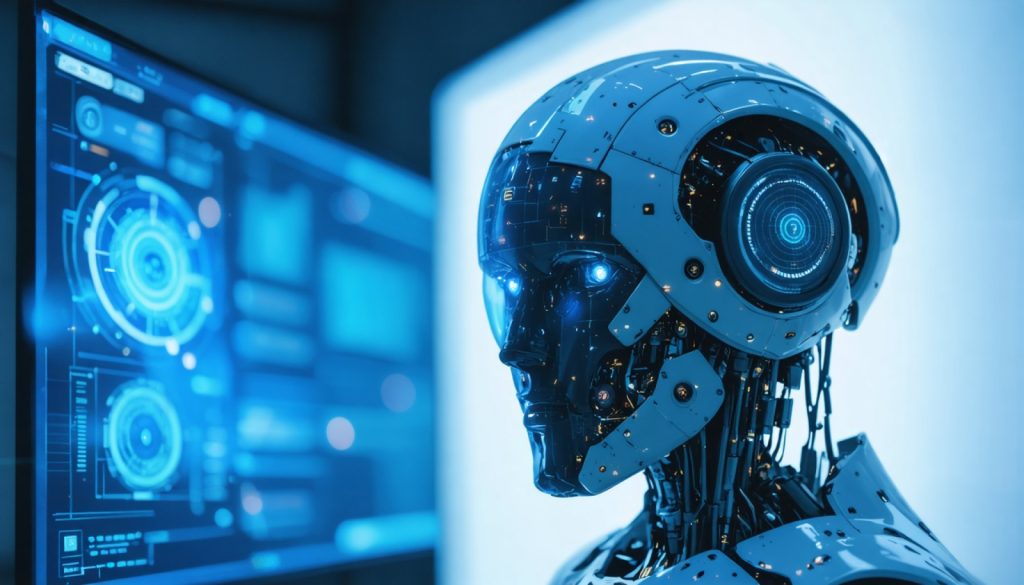
- Artificial intelligence, exemplified by tools such as ChatGPT, is transforming legal education and practice by assisting in legal research and analysis.
- The integration of AI into law firms faced initial skepticism, but its benefits quickly gained recognition, especially after AI-assisted tools like Lexis+ AI proved valuable.
- AI’s ability to efficiently process vast amounts of data allows legal professionals to focus on in-depth analysis and application of laws.
- Despite its advantages, AI poses ethical challenges, including potential impacts on creative legal argumentation and confidentiality concerns.
- Future legal practice will require a balance between AI’s precision and human judgment to maintain integrity and competence.
The digital corridors of today’s legal landscape echo with a new kind of chatter—one powered not by legal minds alone, but by the invisible algorithms of artificial intelligence. As an ambitious third-year law student, I’ve found myself at the crossroads of tradition and technology, witnessing firsthand the seismic shifts AI is catalyzing within legal education and practice.
Picture this: a cold November morning in 2022, when OpenAI’s ChatGPT erupted onto the scene, forever altering how law students like myself approach legal studies and practice. Fast forward a few months to my first on-campus interviews, where the very mention of AI integration in big law firm practices was met with skepticism. Yet, I had already wielded AI’s power during my December exams, relying on it as a study aid that rivaled the best legal minds I’ve known.
The landscape didn’t remain skeptical for long. By 2023, AI headlines flooded the legal world, reaching a crescendo when a New York attorney faced sanctions for failing to validate AI-cited cases. Meanwhile, LexisNexis, the titan of legal research, launched Lexis+ AI, quickly rising to prominence among students and professionals alike. These tools, alongside smaller players like Paxton AI, have made it possible to embark on a new frontier in legal research.
Why, then, does this union between AI and law matter? At the heart of AI’s allure is its uncanny ability to sift through oceans of data, pinpointing the needle in the haystack that might have taken hours to unearth manually. Personally, I’ve seen how it emboldens the early stages of legal research. It allows me to delve deeper into analyzing and applying laws rather than drowning in an endless sea of preliminaries.
Moreover, the power of AI transcends mere speed and efficiency. While working with the Tennessee Attorney General’s Criminal Appeals Division, I embraced Lexis+ AI for its ability to unearth pivotal caselaw and craft compelling arguments. Its impact on learning has been just as profound—distilling complex doctrines into digestible insights and illuminating unique perspectives in civil rights debates.
Yet, amid the excitement, caution lights flicker. The legal fraternity has yet to fully resolve the ethical dilemmas AI presents. Tools now replicate writing styles from past briefs, potentially eroding the creative thought processes vital to argumentation. Furthermore, reliance on AI’s legal interpretations could clash with the evolution of statutory meanings—debates that will certainly shape the future legal battlefield.
Confidentiality concerns persist as well. My institution’s recent AI policy stresses prudence: without guarantees of data privacy, we students must cautiously navigate questions we pose to AI tools, lest we compromise sensitive information. However, the emergence of locally hosted models presents a tantalizing solution, promising control over data handling and mitigating privacy risks.
As I stand on the precipice of my legal career, I frequently contemplate my relationship with AI. It’s vital to remind myself—and my peers—that while AI offers unprecedented utility, cultivating a robust understanding of the law requires more than quick answers. It necessitates critical engagement with the material, preventing overreliance on what should be an aid, not a crutch.
In balancing technology with traditional learning and judgment, we can harness AI’s potential, securing a competitive edge without sacrificing integrity or competence. As AI continues its inexorable march into the halls of justice, the key to thriving in this new era lies in blending human acumen with artificial precision, crafting a legal future both inspired and informed.
The Future of Law: How AI is Revolutionizing Legal Practice
The Integration of AI in the Legal Landscape: A Comprehensive Overview
In recent years, the integration of artificial intelligence (AI) into the legal profession has sparked both enthusiasm and caution. The emergence of AI tools like OpenAI’s ChatGPT and Lexis+ AI provides transformative capabilities in legal education and research but also presents ethical and practical challenges. Let’s explore the pressing questions and implications of AI’s role in law.
How AI is Enhancing Legal Practices
1. Research Efficiency and Depth:
– Speed and Accuracy: AI tools can analyze vast amounts of legal data in seconds, allowing lawyers to locate relevant precedents and statutes faster than traditional methods.
– Advanced Search Capabilities: Platforms like Lexis+ AI facilitate more nuanced searches, helping legal researchers uncover critical insights that might otherwise be overlooked. According to experts at LexisNexis, these tools enhance the depth and breadth of research, enabling a more comprehensive understanding of legal issues.
2. Legal Writing and Document Review:
– AI assists in drafting legal documents by providing templates and auto-generating content based on existing examples. However, users must ensure the final products meet specific ethical and professional standards to maintain creativity and accuracy.
3. Predictive Analytics:
– By analyzing past judicial decisions, AI can offer predictions about case outcomes, helping lawyers develop strategies that are informed by historical data trends.
Addressing the Ethical and Practical Challenges
1. Ethical Dilemmas:
– The reliance on AI for legal decision-making raises questions about the potential erosion of human creativity and judgment. Legal professionals must ensure that AI acts as a complement to, rather than a replacement for, traditional legal reasoning.
2. Confidentiality and Data Security:
– There is an ongoing debate about the security of sensitive legal information processed by AI tools. The introduction of locally hosted AI models is one promising solution to enhance data privacy.
3. Regulation and Standards:
– The legal community must work towards developing regulations and standards for AI usage in legal practice to ensure ethical integrity and consistency.
Real-World Use Cases and Industry Trends
1. Law Firms Adopting AI:
– Major law firms are increasingly adopting AI tools to streamline operations, increase efficiency, and offer high-quality services to clients. For instance, firms use AI for due diligence, contract review, and discovery processes.
2. Education and Training:
– Law schools are incorporating AI literacy into their curricula, recognizing its growing importance in the legal profession. Future attorneys need to understand how to use these tools effectively while upholding ethical standards.
Pros and Cons of AI in Legal Practice
– Pros:
– Increased efficiency and productivity.
– Improved accuracy in document drafting and analysis.
– Enhanced ability to predict legal outcomes.
– Cons:
– Potential for reduced creative and critical thinking.
– Ethical concerns about over-reliance and confidentiality.
– No standardization in AI tool usage across the legal field.
Actionable Recommendations
1. Enhance Skills: Legal professionals should cultivate a deep understanding of AI tools and their applications, balancing technological use with traditional legal skills.
2. Stay Informed: Keep abreast of the latest AI developments and their implications for legal practice.
3. Prioritize Ethics: Adopt AI responsibly, ensuring that ethical considerations are central to AI use in legal processes.
As AI technology continues to evolve, the legal field stands at the threshold of a new era where innovation meets tradition. Embracing AI responsibly will allow the legal profession to harness its full potential, paving the way for a future where human acumen and artificial precision work hand in hand. Explore more at OpenAI.



